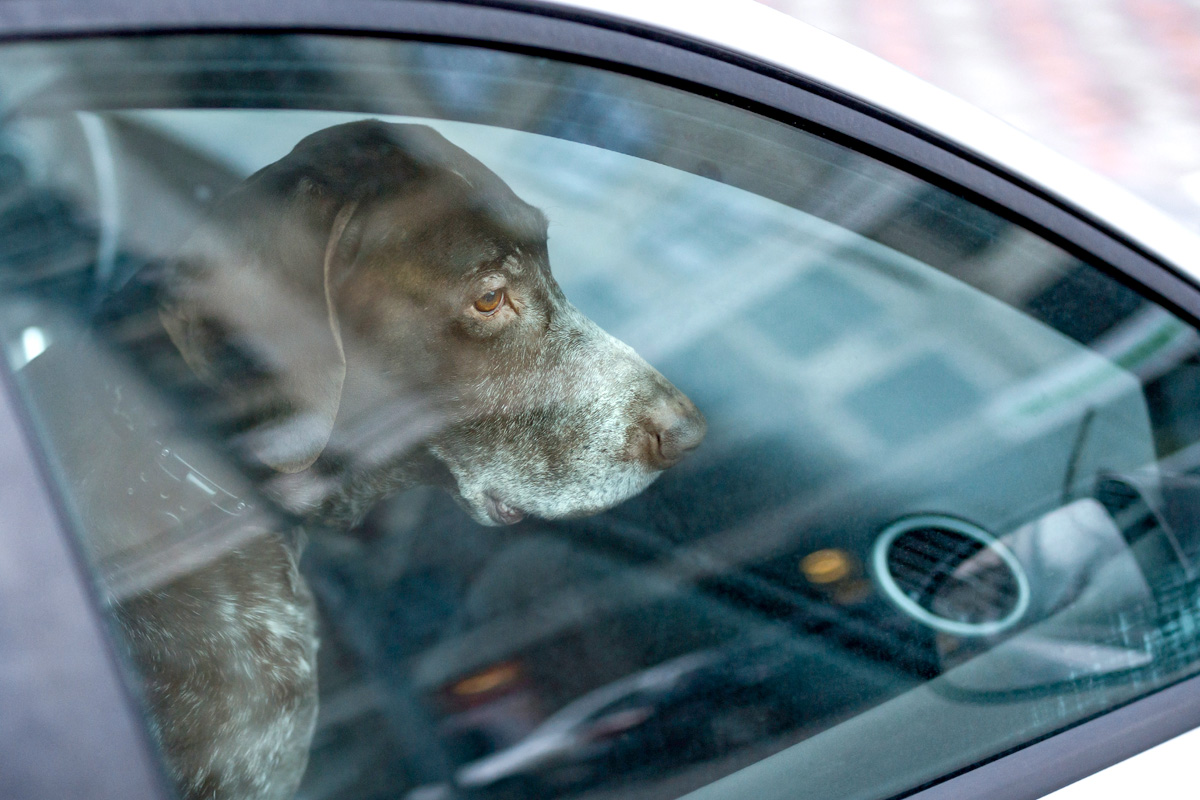With the extreme heat of these upcoming days, we need to stay vigilant to make sure our pets stay safe and healthy.
Some things to keep in mind:
- Keep your pet indoors as much as possible!
- Have a cool, well-ventilated space for your pets.
- Make sure your pets have access to plenty of fresh clean drinking water.
- Never leave your pet in a car, even if it doesn’t seem hot outside. Temperatures in your vehicle can rise extremely quickly and can kill pets rapidly.
- Limit exercising animals in hot weather.
- Try to avoid hot sand, concrete, asphalt areas or any other areas where heat is reflected and there is no access to shade.
Heatstroke (hyperthermia) is also known as overheating or heat exhaustion. It can overtake your pet when their body temperature rises above 103°F. Dogs can’t cool off their body by sweating the way that we do. That makes them more vulnerable to heat-related conditions. If warning signs aren’t recognized immediately, heatstroke can be fatal.

NEVER LEAVE YOUR PET IN A CAR, even if it doesn’t seem hot outside. Temperatures in your vehicle can rise extremely quickly, and can kill pets rapidly.
Keep a close eye out for signs of overheating, including:
- Excessive panting
- Excessive drooling
- Difficulty breathing
- Vomiting
- Diarrhea
- Weakness
- Incoordination or stumbling
- Sudden collapse
- Seizures
Should your dog begin to exhibit mild heatstroke signs, offer a drink of cool—not cold—water. You can also cover your pet in towels soaked in lukewarm water, but take care to cool them down gradually, as you don’t want to trigger dangerous blood pressure changes.

Even if your pet looks like they may be recovering or you suspect they might have heatstroke, it is important that they get checked by a veterinarian.
Your pet’s body temperature should decrease, and she should begin to improve in 10 minutes. Stop cooling her when her body temperature reaches 102.5 degrees to prevent her from becoming too cold, as her temperature will continue to drop.
If your pet’s condition does not improve in 10 minutes, take her to the nearest AAHA-accredited veterinarian immediately for advanced support, such as intravenous fluids, blood pressure maintenance, or other medications.


